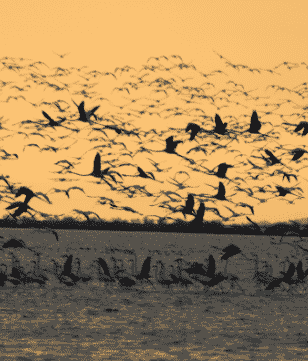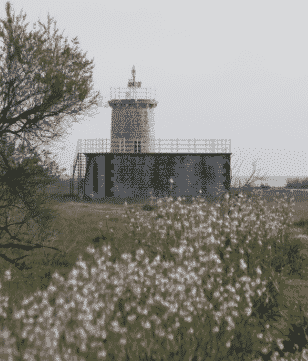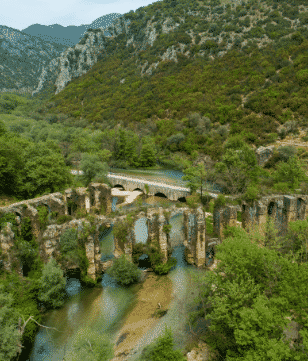Culture
Culture
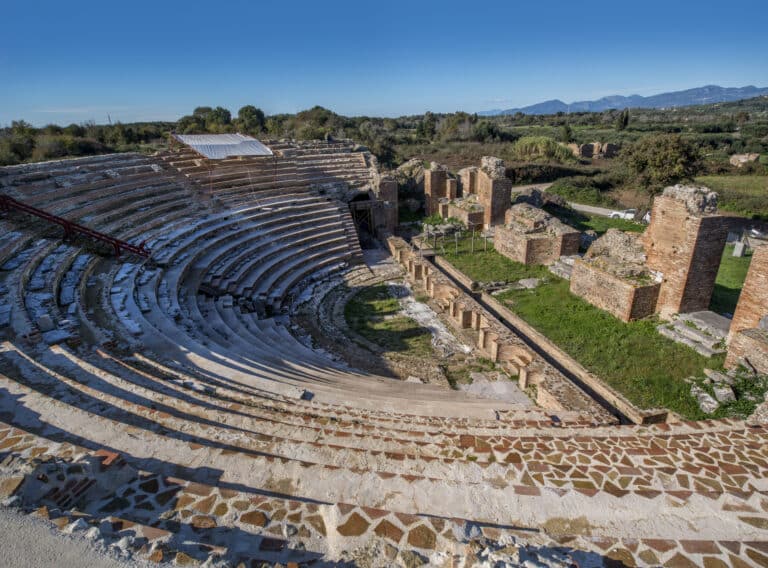
Odeon of Nicopolis
It is a true architectural masterpiece, by some unknown but great architect. It lies in the center of the city, on the western side of the wall, adjacent to the Roman agora. It was used for lectures, literary and musical contests and theatrical performances during the Nea Aktia religious games honouring Apollo. It was built […]
View More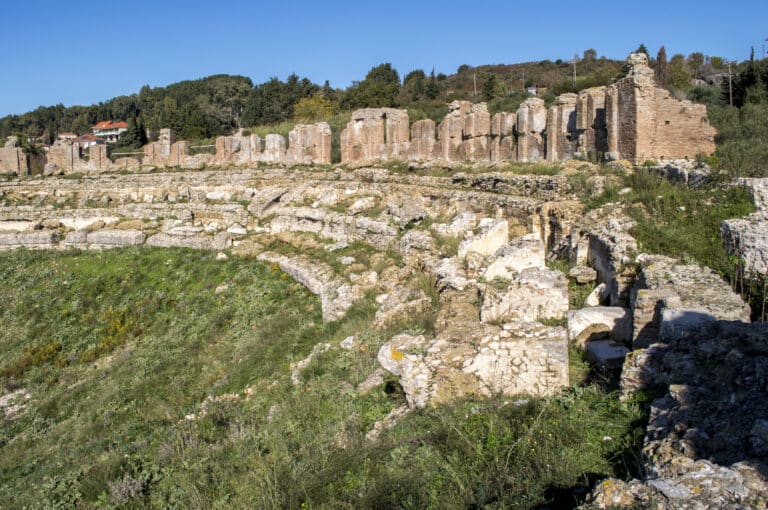
Theatre of Nicopolis
It is an impressive building erected in the early 1st century AD, together with other public buildings in the city. It operated mainly during the religious celebration of the Nea Aktia, in honor of Apollo. Lists of winners in the Nea Aktia contests found in the temple of Apollo inform of competing poets, sophists, comedians, […]
View More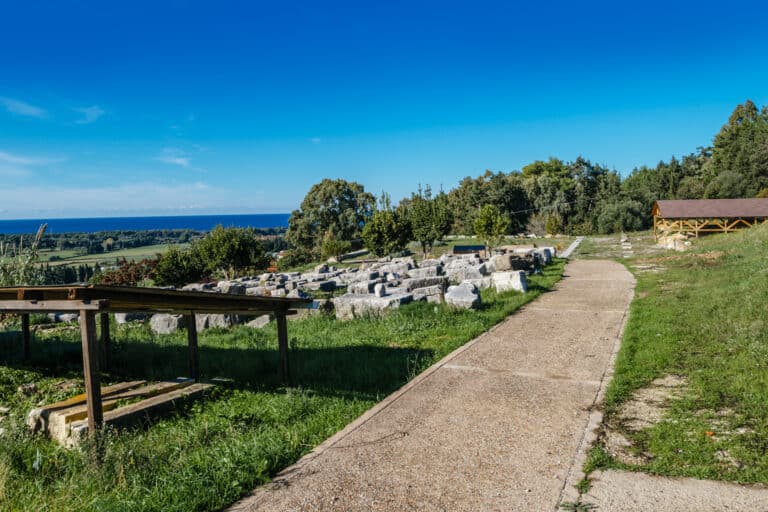
Monument of August
This is the monument – a trophy of the battle of Actium, which was erected by Octavian Augustus to commemorate his victory over Antony and Cleopatra. Built in 28 BC over the hill of Michalitsi, in a position with a panoramic view, it towers over the archaeological site. The sources mention that Octavian had set […]
View More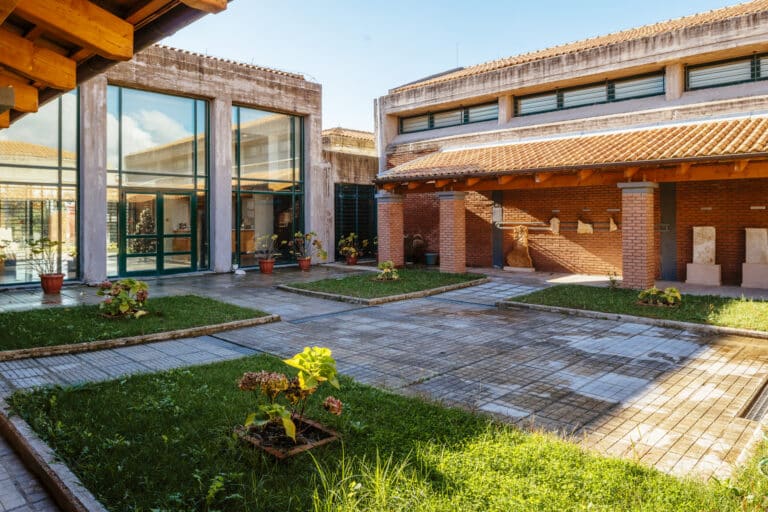
Archaeological Museum of Arta
Located at a small distance from the famous bridge of the city, it is housed in a new building and was inaugurated in Autumn 2009. It includes a great collection of ancient objects chronologically covering a big period, from the Paleolithic Age to the Roman times. Most of the exhibits, the most significant ones, date […]
View More
New Archaeological Museum of Nicopolis
The building of the new museum is located at the entrance of the town of Preveza. The museum exhibition is exclusively based on the findings of the archaeological site of Nicopolis and not on the collection of a large area, which largely determines the central idea. Therefore, one of the primary factors is the connection […]
View More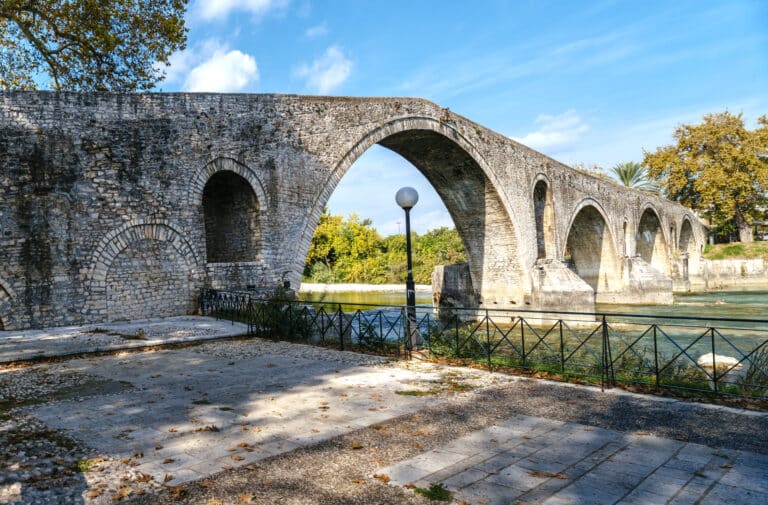
The Historical Bridge of Arta
It is one of the most famous bridges of Epirus. It consists of four large semicircular arches supported by large abutments over which dominate the vaults. Its width is 3.75 m and its length 145 m. According to the tradition, the bridge was built in the early 17th century by the Artan Giannis Thiakogiannis. The […]
View More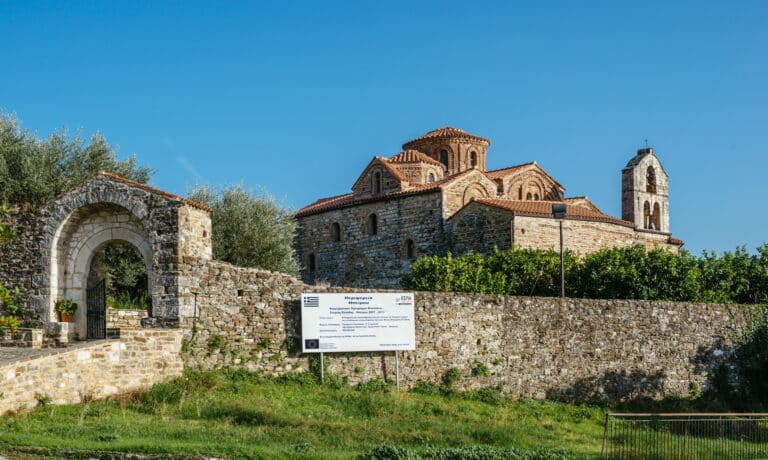
Panagia Vlachernon
It is located in the village of Vlaherna, opposite Arta, and took its name from the famous Panagia of Vlahernae in Constantinople. It was founded at the end of the 11th century and remodeled in the mid 13th century by Michael II Komnenos Doukas. Another jewel of the glory and religiousness of the sedulous Christians […]
View More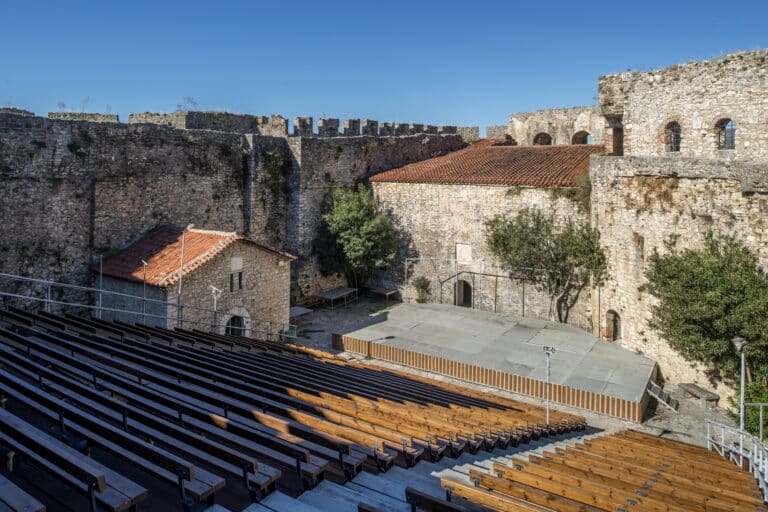
Castle of Arta
Built by Michael II, Despot of Epirus, in the 13th century, the castle of Arta preserved in an excellent condition, is a representative example of the secular architecture of the Byzantine period and the medieval character of Arta. It is one of the major attractions of the area. It is the crown of the lower […]
View More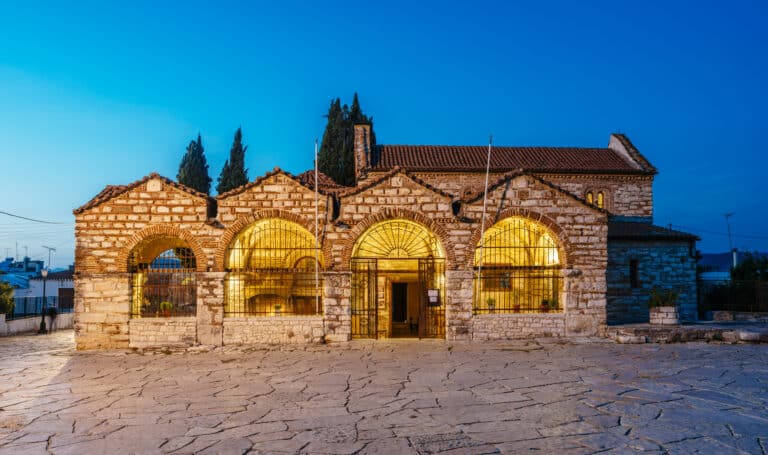
Church of Agia Theodora
The church of the patron saint of Arta and a pillar are the only salvaged parts of the monastery founded in the 13thcentury by the queen of the Despotate, Theodora. It was founded in honor of St. George and functioned as a convent for nuns. After the death of her husband, Theodora lived as a […]
View More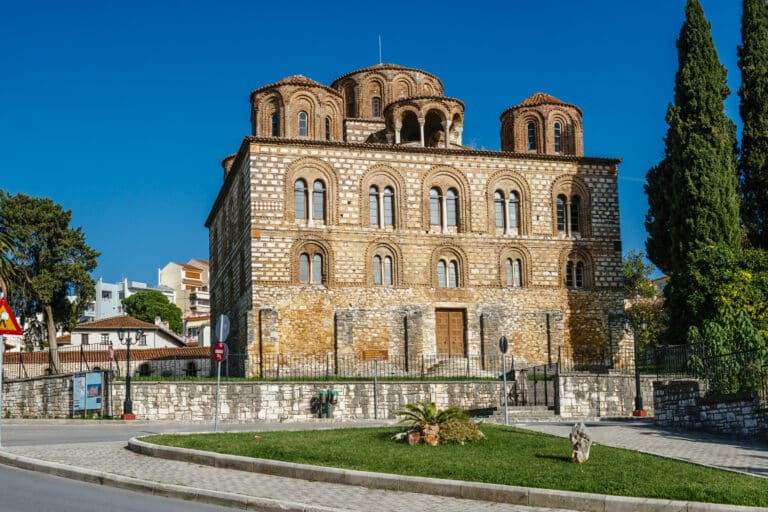
Panagia Parigoritissa (of Consolation)
13th-century building founded by Nikephoros I Komnenos Doukas and his wife Anna Palaiologina Katakouzene It is the “lady” of today’s Arta, the jewel of the once glorious capital of the Despotate of Epirus. It dominates over the densely populated slope of Peranthi hill, with its imposing presence being a reminder of the grandeur of Byzantine […]
View More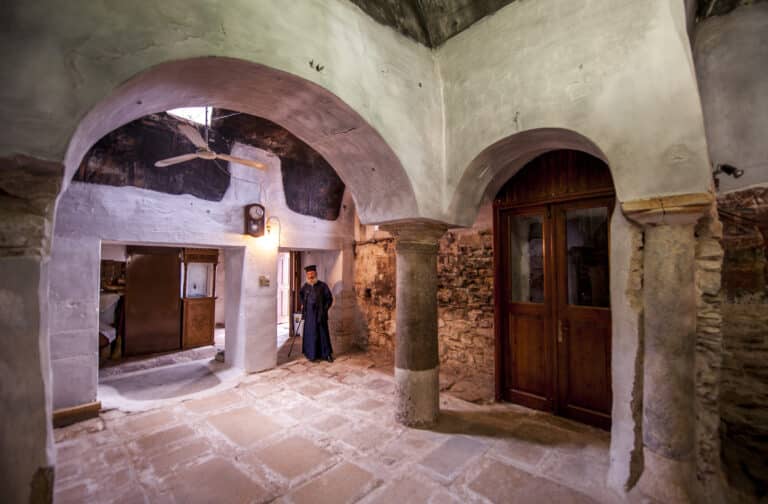
Panagia Koronisias
In the middle of beautiful Koronisia, in the arms of Amvrakikos gulf, dominating on the top of the small hill, guard over all, the land and the sea, stands the little church of the Nativity of the Theotokos, a remnant of the old and thriving monastery. This is one of the oldest churches of Byzantine […]
View More
Castle of Rogoi, Assumption of the Theotokos
The Castle of Rogoi rises on a hill in the area between Nea Kerasounta and Petra. It was built on the ruins of the ancient city of Bouchetion which was a colony of the Eleans. The citadel was first fortified in the 5th century BC and the boulders can be distinguished in the current structure […]
View More


